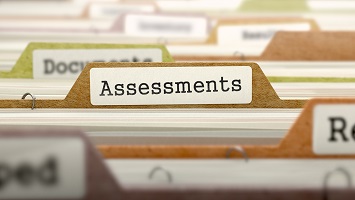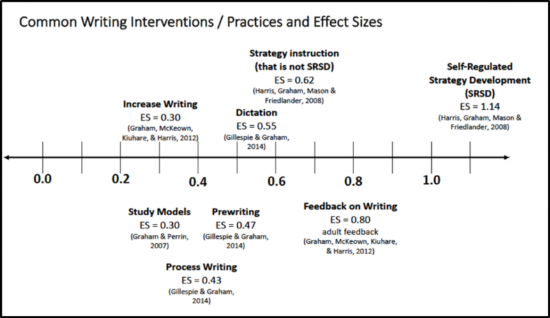 During a recent regional training, Transition Planning and Assessment for Students who are Career Bound, participants had the opportunity to dive into some articles on evidence-based practices to support employment outcomes for youth. Research shows that these predictors are correlated with positive outcomes for youth in the areas of postsecondary education, employment, and independent living. Each group explored one to two articles on a predictor of post-school success and identified recommendations to support these predictors in school. Their recommendations and corresponding resources are listed below:
During a recent regional training, Transition Planning and Assessment for Students who are Career Bound, participants had the opportunity to dive into some articles on evidence-based practices to support employment outcomes for youth. Research shows that these predictors are correlated with positive outcomes for youth in the areas of postsecondary education, employment, and independent living. Each group explored one to two articles on a predictor of post-school success and identified recommendations to support these predictors in school. Their recommendations and corresponding resources are listed below:
The Role of the Family in Career Development
- Identify Learning Styles and help families/students understand the student’s strengths.
- RESOURCE: C.I.T.E Learning Style Assessment http://www.kyae.ky.gov/NR/rdonlyres/9846EA06-6E14-4101-8B40-72C178276E91/0/CITELearningStylesInstrument.pdf
- Encourage community and career exploration with the family to promote a variety of Interests.
- Complete Individualized Learning Plans (ILP) which include student identified career and life goals, courses in school, and post-secondary training and education goals.
- RESOURCE: NYSED Career Plan http://www.p12.nysed.gov/cte/careerplan/
Interagency Collaboration
- Identify the process(es) for students to apply for adult services.
- Have students participate in the application process.
- Find out if an interagency council exists in your region and contact them.
- Create a schedule for transition milestones and disseminate to families
- RESOURCE: Transition Timeline https://drive.google.com/file/d/0B7e6nmuSk1-gZ2xGTDJJWDZubkU/view?usp=sharing
Career Awareness
- Provide Internships with local employers and/or within school buildings for students to learn on-site job skills and CDOS Learning Standard 3a: Universal Foundation Skills.
- Provide parent trainings on career awareness and ACCES-VR.
- Identify and support academic skills that translate to job-site success (listening skills. Etc.)
Work Study
- Implement an internship program
- Give students opportunities to “reflect, discuss, and share” work experience.
- RESOURCE: ny.gov has a journaling module
- Bridge the Gap-foster business/school partnerships
- Complete Career Interest inventories and Research Careers
- RESOURCE: Holland Code Assessment https://drive.google.com/open?id=0B7e6nmuSk1-gZThzMHV1UDdpYlE
- CareerZone.ny.gov also offers a Holland Code Assessment
- Resource: Career Cluster Interest Inventory
- RESOURCE: Holland Code Assessment https://drive.google.com/open?id=0B7e6nmuSk1-gZThzMHV1UDdpYlE
Program of Study
- Integrate career awareness activities such as guest speakers and reading material on careers into the existing curriculum to expose students to various careers.
- Post Links and Resources in the classroom.
- RESOURCE: Multi-media Resource Guide https://drive.google.com/open?id=0B7e6nmuSk1-gaWJ1RHRVdlFGWkU
- Increase education for parents.
Self-Determination/Self-Advocacy
- CSE/IEP Meetings
- Involve students, ensure they are actively involved.
- Prepare and discuss the meeting prior.
- Have students choose classes for next year.
- Students create IEP goal PowerPoint.
- Student develops their goals with the group.
- Skill Building
- Provide Staff Development on how to teach goal setting and attainment and self-determination skills
- Explicit Direct Instruction in Class on self-determination and self-advocacy.
- Incorporate these skills throughout the day.
- Planning
- Complete transition assessments
- CareerZone and Naviance
- Create short and long term goals.
If you are interested in exploring additional information on evidence-based practices to support positive adult outcomes for our youth, there are a number of resources available. The Council for Exceptional Children Division on Career Development and Transition and the National Collaboration on Workforce and Disability provide fast fact sheets on the predictors for post-school success. Additionally, the National Technical Assistance Center on Transition provides information on the research behind these predictors and how to implement them in your classroom! Links to these resources are listed below.
Websites for Info Briefs, Evidence-Based Practices, and Fast Fact Sheets
- Council for Exceptional Children Division of Career Development and Transition Fast Fact Sheets: http://community.cec.sped.org/dcdt/publications/fast-facts
- Evidence-Based Practices and Predictors Matrix: http://transitionta.org/system/files/effectivepractices/EBPP_Matrix_Links_Updated_11-02-16.pdf?file=1&type=node&id=1093
- National Collaboration on Workforce and Disability Fast Fact Sheet: http://www.ncwd-youth.info/type/brief


 Data-Driven Decision-Making
Data-Driven Decision-Making  Increasing Post-School Success through Interagency Collaboration
Increasing Post-School Success through Interagency Collaboration  How Can We Improve Deeper Learning for Students with Disabilities?
How Can We Improve Deeper Learning for Students with Disabilities?  Positive Classroom Management: Creating an Environment for Learning
Positive Classroom Management: Creating an Environment for Learning  Self-Determination Skills Empower Students of All Ages
Self-Determination Skills Empower Students of All Ages  Fidelity of Implementation: What is it and Why does it Matter?
Fidelity of Implementation: What is it and Why does it Matter?  Rethinking Classroom Assessment
Rethinking Classroom Assessment  A Three-Step Approach to Identifying Developmentally Appropriate Practices
A Three-Step Approach to Identifying Developmentally Appropriate Practices  Transforming Evidence-Based Practices into Usable Innovations: A Case Study with SRSD
Transforming Evidence-Based Practices into Usable Innovations: A Case Study with SRSD